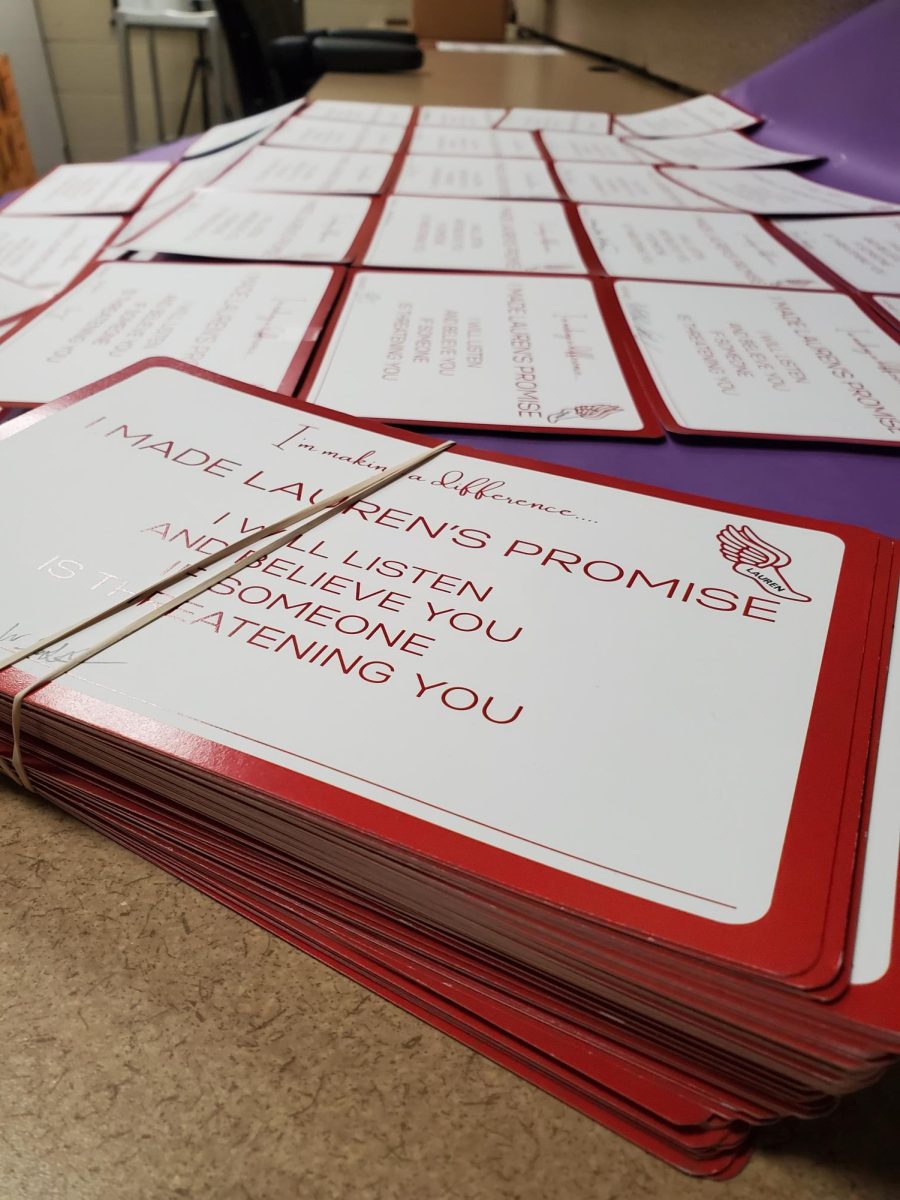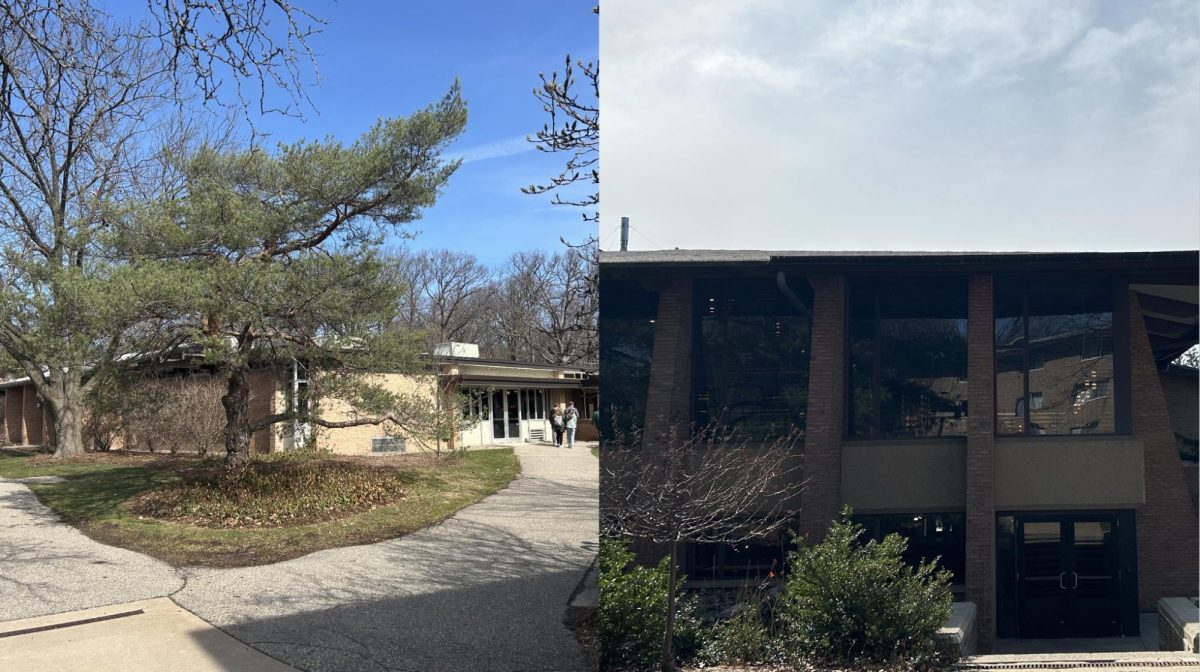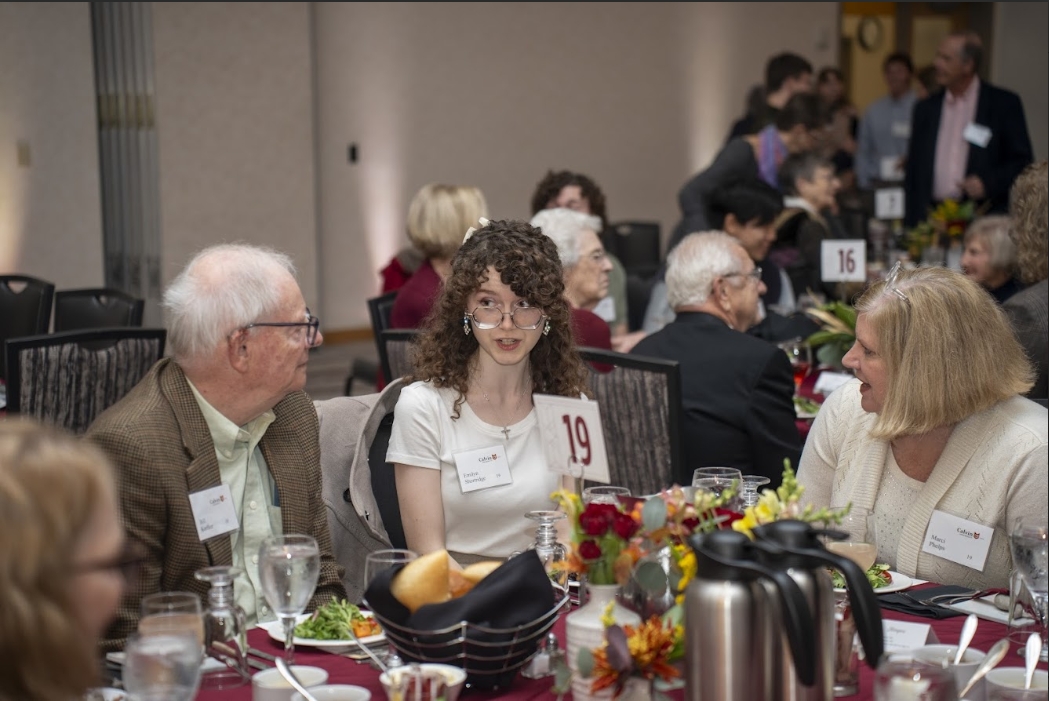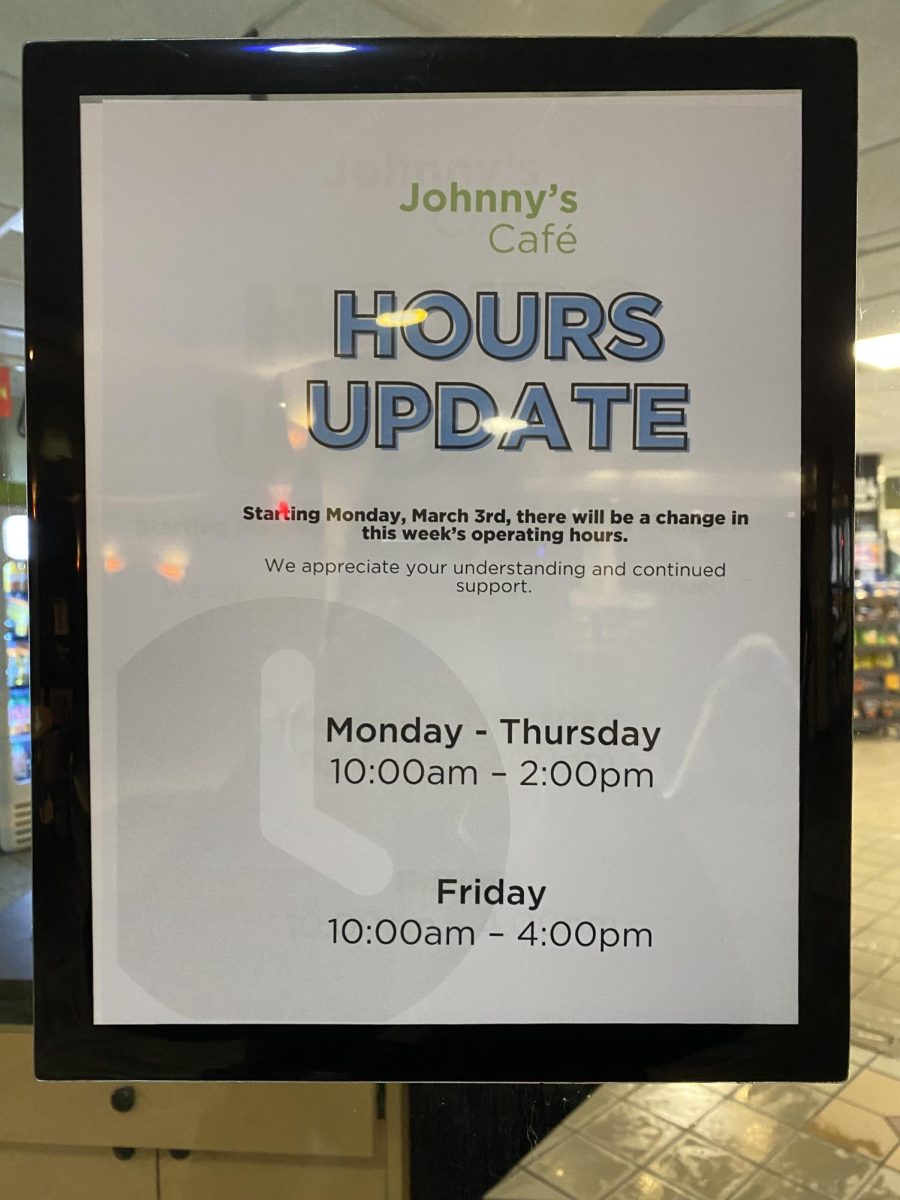October is Domestic Violence Awareness Month, and the Sexual Violence Prevention and Education Ambassadors of Calvin (SPEAC) have been hosting events to raise awareness and educate bystanders.
SPEAC is a relatively new organization on Calvin’s campus, funded by a three-year, $300,000 grant Calvin received from the federal government’s Office on Violence Against Women (OVW) in fiscal year (FY) 2021. During the first year and a half of the grant, program coordinator Samantha Hidalgo, in consultation with a team of other field experts — the Coordinated Community Response Team (CCRT) — planned programming and built connections with community partners, which was an essential requirement of the grant terms, according to Hidalgo.
This year, the implementation phase has begun. According to Hidalgo, the grant encourages the team to “look at these issues from both a prevention lens and an intervention lens.” Five student employees were hired to focus on education and prevention. Their first event involved a memorial walk and a showing of a documentary about Lauren McCluskey, a college student who was a victim of dating violence on the University of Utah’s campus, according to Emily Feikema, a student hired to work on the SPEAC team. SPEAC also asked students on campus to sign the pledge created by the Lauren McCluskey Foundation, which reads “I will listen and believe you if someone is threatening you.”
Their next event will be offering purple beaded bracelets that say “speak up” and “believe them,” Feikema told Chimes, encouraging students to pay attention and support fellow students who might be survivors of sexual assault, dating violence, stalking or other forms of sexual violence on or off campus.
The grant
These prevention and intervention efforts aren’t just happening on Calvin’s campus. Fifty-one other colleges also received the OVW campus grant in FY 2021, and this grant program has been in place for some time. While grants were given to colleges before 2010, OVW has consolidated numbers regarding specific program funding only beginning in 2010.
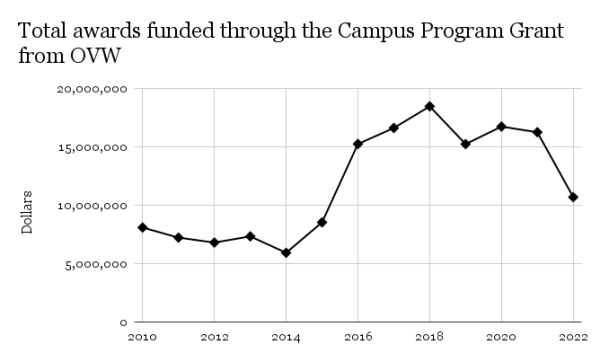
Women in college between the ages of 18 and 24 are three times more likely to be assaulted than other women. Additionally, women of that age not in college are four times more likely to be assaulted than other women. Only 20% of female student victims aged 18-24 report to law enforcement.
While men experience sexual assault at much lower rates than women, men in college between the ages of 18 and 24 are more likely than their non-student male counterparts to be a victim of rape or sexual assault.
At Calvin, instances of sexual or dating violence or harassment are rare, though not nonexistent. In the 2022 Clery Report – Jan. 1 to Dec. 31 — there were two reported instances of rape, one of fondling, one of extortion in which the perpetrator “was threatening to post photos of the student” and four incident reports involving stalking. In the 2023 Clery Reports thus far, — Jan. 1 to Oct. 22 — there has been one reported instance of rape, four instances of stalking, two of fondling and four instances of extortion involving “compromising” pictures or “photos of a sensitive nature.”
Being educated and aware of dating violence and stalking is important, according to Hidalgo, because “there are people who may be more vulnerable, but at the same time these things do happen to anyone.”
The goal of the federal grant –– specifically named “Grants to Reduce Sexual Assault, Domestic Violence, Dating Violence, and Stalking on Campus Program (Campus Program)” — is to aid institutes of higher education as they work to prevent and respond to these issues, particularly providing funding to “develop coordinated community responses” that include relationships with community leaders, partners, law enforcement, faith leaders, campus victim service providers and health providers, according to OVW’s website.
As mentioned earlier, the formation of a Coordinated Community Response Team is required as a part of the grant. At Calvin, this team is composed of the program’s community partners like Safe Haven, the YWCA and the Grand Rapids Police Department, as well as people on campus who work in Title IX, Student Conduct, Campus Safety, the Center for Intercultural Student Development, the Sexuality and Gender Awareness (SAGA) program and Health Services offices. Several professors are on the board as well. The inclusion of all these people, according to Hidalgo, “help[s] me strategically plan, to make sure we’re kind of all on the same page.”
The formation of this team is not the only requirement; SPEAC must have all of their purchases and programming approved 30 days in advance of their proposed use of the money. “They want to make sure we’re doing things right, which is good…It’s definitely a lot of red tape,” Hidalgo said.
SPEAC’s work so far
“I think that’s a big thing is that we’re trying to kind of break the silence around these issues,” Hidalgo told Chimes. “And I think in a Christian context, people want to stay quiet about, just, sex in general, not even to mention unhealthy versions of, you know, sexual violence.” She attributes this in part to purity culture and the shame a lot of Christians often hold regarding sex.
By starting conversations, SPEAC hopes to help students feel heard. Meral Mowad, a student working with SPEAC, told Chimes that a student came up to her after the memorial walk, thanked her and “share[ed] something very personal.” Mowad said, “I think that’s what makes it rewarding for me. Not really, how many people did we get? But more like, this actually makes a change for one person.”
Other initiatives the organization has worked on include facilitated bystander prevention training modules, which all Calvin students need to complete their freshman year; SPEAC offered meetings in dorm basements for students to complete them together while initiating discussion, according to Feikema. “We are also going to be facilitating intimate partner violence seminars that will be held in the dorms, so students can kind of know what that looks like,” she said. Next semester, Hidalgo is working to start a support group facilitated by someone from Safe Haven ministries where students will learn to recognize dating violence or relationship abuse and gain different relevant skills. Finally, SPEAC has invited an advocate who works with the YWCA to hold office hours on campus on Thursdays from 3 p.m. to 5 p.m., starting in mid-October and continuing for the near future.
“Advocates are basically people who — they’re a confidential resource, which is really important — so they can really provide any sort of support, whatever the survivor needs,” whether that be a connection to resources or support in their request to report or simply a listening ear who is “trained to have those kinds of conversations,” Hidalgo said. The advocate is not affiliated with Calvin, because “I think sometimes students feel a little safer if they know that it’s an off-campus person,” Hidalgo told Chimes.
However, on-campus resources like Safer Spaces and Campus Safety are also available and actively working to support students. “I’ve just been met with such support,” Hidalgo said. “I would just love for students to know that people at Calvin really care and they’re really, we’re really, working to prevent harm.”
The three-year grant will end about a year from now in the fall of 2024, but Hidalgo and the SPEAC team are hoping to apply for a continuation, which would provide funding for another three years. “The more participation and student engagement we get, the better that sets us up for getting three more years to continue the work in this way,” she said.



